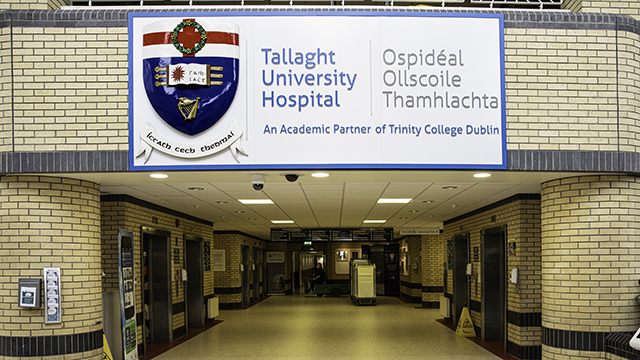A free Information Day will be held in Tallaght County Library on Tuesday, September 17th marking the 10th Anniversary of the Institute of Memory & Cognition at Tallaght University Hospital (TUH).
The Institute includes Ireland’s first ever Brain Health Clinic which diagnoses and treats dementia.
The free information day for the public will feature a variety of talks from leading national experts in the field.
There will also be stands from relevant groups like the Alzheimer’s Society of Ireland.
The event takes place in Tallaght Library from 12pm until 5pm on Tuesday, September 17th 2024.
The following short talks will begin at 3pm, on the day;
- An Introduction to the Service (including its history and future plans) by Prof Séan Kennelly, ( Director of the Institute of Memory & Cognition at TUH)
- The Importance of Brain Health by Graham Knight (Advanced Nurse Practitioner)
- What supports are available after a Dementia Diagnosis by Cathy McHale (Advanced Nurse Practitioner)
- The Evolution of the Hospital’s Neurocognitive Service by Emmet Kelly (Advanced Nurse Practitioner)
- How the National Intellectual Disability Memory Service works Evelyn Reilly (Advanced Nurse Practitioner)
- An introduction to the Clinical Trials run at the Institute from Ruth Ennis, (Cognitive Clinical Trials Manager)
The event will also feature information stands from;
- The Alzheimer’s Society of Ireland
- The HSE’s Memory Technology Resource Room in Ballyfermot
- The Integrated Care for Older Persons Team
- The National Intellectual Disability Memory Service
- Alone
- The Community Guard
- The Social Prescribers, South Dublin County Partnership
- Ex Well Medical
- Citizens Information Tallaght
The Institute of Memory & Cognition at TUH has developed over the last ten years, providing a five-day Interdisciplinary Geriatric-Neurology Memory Service that sees 400 new patients annually.
It also includes The Brain Health Clinic which treats 200 patients each year and the National Intellectual Disability Memory Service who care for 150 new patients each year.
The Institute also houses the Cognitive Clinical Trials Unit at TUH.
Over the years the Institute has continued to increase its workforce and now has over 20 permanent staff with expertise in neurology and geriatric medicine, as well as nursing, social work, occupational therapy, speech and language therapy, physiotherapy, neuropsychology, and dietetics. All work together in a truly interdisciplinary fashion.
Professor Seán Kennelly the Director of the Institute of Memory & Cognition at TUH says, “I would like to invite anyone interested in this event to come along to find out more about our Institute. Since we began operating we have grown from a service that diagnosed 70 new cases per year in 2014, to one that is now Ireland’s largest with over 550 new diagnoses per year.
“The other big change has been the application of biomarkers to support diagnosis. We can now measure the levels of proteins we know are responsible for Alzheimer’s disease by doing a lumbar puncture.
“In 2014 we were doing these tests around 10 times a year and it could take four months for the results to come back.
“Last year we did almost 150, and through a new system validated within the laboratory in TUH, the results were back within two weeks.”
CEO of TUH Lucy Nugent said,“I would like to pay tribute to my colleagues Professor Kennelly, Dr Fallon, and Dr O’Dowd and the entire memory service team who have collectively driven the development of our Institute for Memory & Cognition which continues to deliver excellent care for our patients.
“It is wonderful to be able to celebrate the growth and evolution of this important service at our hospital as it has continued to progress towards better earlier diagnosis, better treatments, and better care for people living with memory problems and dementia.”
Since it began operating the Institute of Memory & Cognition at TUH has had 5,000 outpatient appointments.
A quarter of patients attending the specialist memory service are under the age of 65, and this has increased over the last 10 years.
Before the establishment of this clinic, younger people with memory symptoms had great difficulty accessing a diagnosis, and it could take years.
The average length of time between receiving the referral and seeing someone in the clinic is now around four months, and this can be within the month for urgent referrals.
